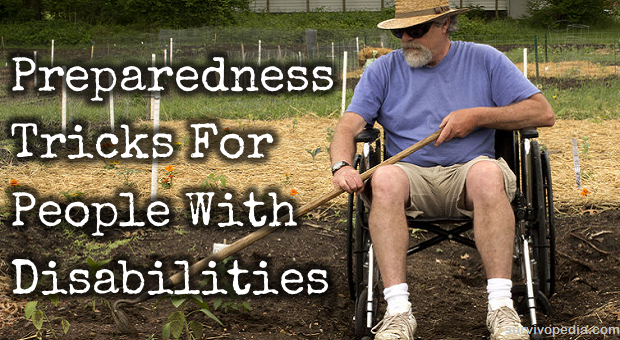
Emergencies typically strike quickly and force you to make a snap decision about whether to stay home or bug out. You need to have plans for both. Just like everybody else, you need to have plenty of food and water in case you decide to stay and you need to have a place to go if you decide to leave.
Sounds simple in theory, right? Making it happen is a bit more complicated. This advice is going to be a bit generic because only you know your strengths and limitations. Make plans accordingly.
Build a Personal Support Network
Especially if you can’t evacuate on your own, building a personal support network is crucial. It should consist of people who know you and know your needs as well as your strengths. At least three of them should also live close enough to you – preferably within walking distance – to get to you quickly.
{adinserter emp}These people will call to check on you and if they can’t reach you by phone, make arrangements for them to come check on you in person. They may be neighbors, friends, family members or members of clubs, churches or organizations.
Don’t make plans with just one person. You should have at least three or four people who will include you in their own preparedness plans. That way, if one person can’t get to you, another can.
Determine What Disasters are Most Likely
Just like any other prepper, you need to know your local area and determine what disasters you need to prepare for. Know your area and what emergencies are likely. You may also have other concerns such as financial crashes or terrorist attacks that you want to include in your plan. That’s up to you but deciding what you’re preparing for is the first step of your plan.
Make a List of Special Needs
After you decide what you’re preparing for, make a list of the type of assistance that you’ll need to survive. Will you need adaptive equipment? Meds? Medical supplies? Will your caregiver, if you have one, be able to get to you? Will you be able to drive out or will you need somebody to come get you? Do you have a service animal? Make a complete list of what you’ll need and use that list to make your plan.
Learn About Community Assistance Programs
Depending upon the type of emergency you’re preparing for, most communities have assistance programs for people with disabilities. From evacuation shelters to transportation services, you may be able to receive the assistance you need to get out of your house and to safety.
If you’re planning more on a SHTF-type situation such as a terrorist attack or an economic crash, your plans will need to be different; at that point community services will likely break down and you won’t be able to depend upon them. That’s where your personal support network will come in handy.
Have an Heir and a Spare
If you require special equipment such as a cane, wheelchair, hearing aids, glasses or prosthetic devices, have a backup and an extra. If something were to happen to those devices, what would you do? You probably already know where you can purchase what you need but sources such as Goodwill, thrift shops and yard sales are great places to pick up extras for very little money.
Try to Store Backup Medication
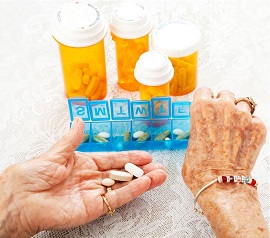
Another good idea is to find natural alternatives to your medications. Sometimes this is viable and sometimes it isn’t but Eastern Medicine has been in existence for thousands of years and has natural treatments for many ailments. After all, something is better than nothing if the emergency lasts long enough for you to run out of meds.
Don’t Talk About Your Stockpile
Simply because people know that you have a disability, you’ll be an easier target for people who didn’t bother to prepare. Telling people that you have enough food and supplies to get through an emergency is a bad idea. When SHTF, they’ll remember that conversation and even the nicest people won’t be so nice when their families are starving.
Look for Like-Minded People
Though it’s definitely a bad idea to tell random people about your prepping efforts, put some feelers out for like-minded people who are as interested in prepping as you are. Ask questions such as “Do you ever think about what you’d do if the power grid went down?”
Of course, fill in the emergencies that you’re preparing for, but you get the idea. If you get a positive response, pursue the subject a bit more without revealing that you’re prepping until you’re sure that they are, too. They may be as hesitant to discuss it as you are but it will be good to have a network if you can find one.
Learn Some Skills
In a post-SHTF situation, you may not be as physically capable as others but if you have skills that other people need, you’ll have a valuable place in the community. Whether it’s fixing cars, making fuel from veggie oil, canning, gardening or healing, learn as many skills as you can. People will be willing to trade skills so you can make up for any physical tasks that you may be incapable of.
Learn to Compensate to Stay Safe
If you live in an area prone to hurricanes, tornadoes or earthquakes, there are certain safety precautions that are recommended. For instance, in the event of an earthquake, safety protocol says to get under a desk, stand in a doorway or get into a corner but if you’re not ambulatory, that’s going to be tough. You need to learn what you need to do that’s within your capabilities to stay safe.
Have a Bug Out Bag Packed
Make sure that you have a bag packed that includes everything that you’ll need for at least 24 hours. This includes your meds along with clothes, water, a med kit and everything else that a standard bug out bag has. Be sure that it’s not so heavy or large that you can’t carry it in some manner, though.
Having a disability doesn’t make you helpless but it does mean that you’re going to have to make some extra provisions for your own safety and welfare in case SHTF. You can survive any situation; you only have to do what you do every day…work with your strengths and compensate for your own needs.
If you have any good prepping tips for people with disabilities, please feel free to share them in the comments section below!
This article has been written by Theresa Crouse for Survivopedia.


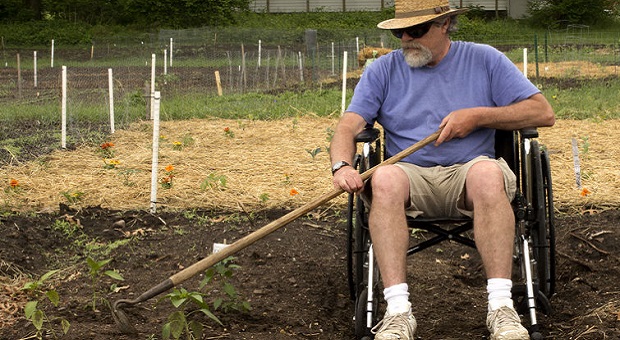
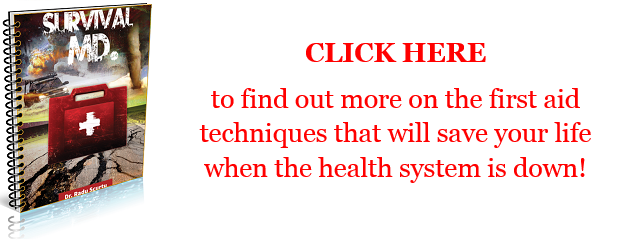
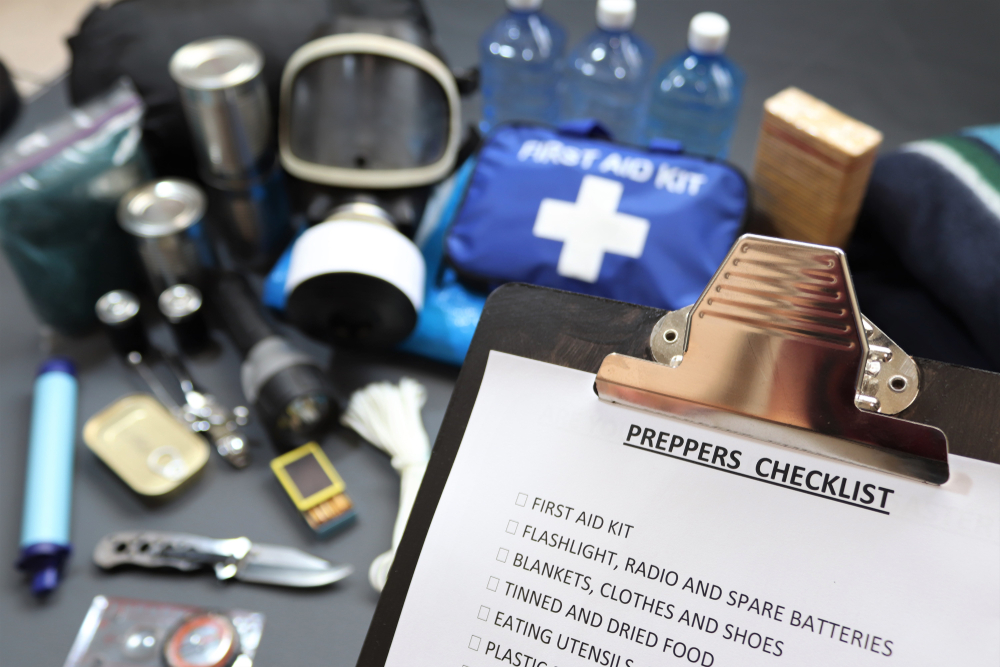




Pingback:Preparedness Tricks For People With Disabilities | TheSurvivalPlaceBlog | June 8, 2015
|
Sparks | July 25, 2017
|
Do the math
Skip one day of meds each week, rotate the skip day each week.
Don Urquhaert | July 11, 2015
|
I am 100% blind, have been for life, but the rest of my body works fine. Believing in the Lord, I am not too worried about being hungry, or even homeless, due to an economic collapse. The thing that concerns me most is something we struggle with even now, with people’s bank accounts ok. To some extent this happens to anyone with a disability, but we who are blind get the “safety argument” thrown at us a lot, when we wish to do something, like try new employment, or even help out with a weekend project. The safety argument has several variations, but it essentially says, “because you are blind, you are a safety risk, a risk we don’t want to take; so, you just stay out of the way and let us take care of you…”. It stinks, however it is worded. In an economic S.H.T.F. situation, I WANT TO HELP with whatever survival program is going on. If people aren’t willing to allow me to help out, I don’t want to survive the crash. If the people around me will trust me to use my carpentry skills, or cooking, or even something like cutting firewood with a hand saw, fine. But, if they physically prevent me from trying, wanting me to basically sit and do nothing but be cute and entertaining–that’s S.H.T.F. to me, ultimate rejection, and I would rather check out; suicide? No, I would risk going to hell for that. I would pray to God for a quick death though. Pray for all the needs out there? Sure, but the Bible challenges all of us who are believers, to do more than just pray; it challenges us to be His hands and feet as well. Life stripped of the opportunity to do that, is no way to live. Sound extreme? Perhaps, but I have been in a place of feeling like a nothing, before I got these newspaper jobs and learned some carpentry; I don’t EVER want to feel that way again. Some have said, I may do best hanging out online, making web sites or helping businesses get likes on FaceBook. Realistically though, it wouldn’t surprise me if, when the economic S.H.T.F., most people can’t pay for the Internet, or just won’t care about it, when they can’t heat the house or eat more than one small meal a day.
If any of you have insights as to how I might go about refuting this “safety argument” before it’s too late, feel free to write me off blog at: [email protected]
Thank you, and God bless 🙂
Pingback:Top 10 Types Of Meds You Need To Stockpile | Prepper's Survival Homestead | November 23, 2015
|
Pingback:Top 10 Types Of Meds You Need To Stockpiledisasterdefense.us | disasterdefense.us | November 23, 2015
|